Your 30-Day Guide in Preparing Your Body For Pregnancy
Pregnancy is an exciting part of a woman’s life. For some, it is the peak of being a woman. To have a safe pregnancy journey, one must prepare the body for the significant transformation it will go through. While some can quickly get pregnant, others with reproductive health issues have difficulty getting that positive sign. The effort maybe twice as much, but trust us, when you make enough investment in your health, it will be worth it in the end. So we’re putting together a 30-day guide on how to prepare your body for pregnancy.
This guide may not be a sure-fire assurance for getting pregnant, but this will increase your chances. Hopefully, this guide will also help you go through the journey with fewer complications. There’s no better way to take on something new than taking it one day at a time. Remember, baby steps will accumulate to significant results. So we hope that these small steps you’ll take every day will finally give you the positive sign you’re longing for.
Day 1: Stop Birth Control

The first thing you need to do is remove any form of contraception or birth control. This is a very important step and increases your chances of conceiving right away. In fact, some can get pregnant after a few months of stopping their birth control pills or contraception! The most common birth control is the pill. Many women who quit the pill get their period within two weeks. When this happens, the first cycle of ovulation starts. In many cases, when the timing is right, women get pregnant easily. However, others may take a few months before they start ovulating. Don’t worry, this is just the first step, and there are 29 more that you can do! Give yourself some credit, and don’t give up when you’ve just about started. For other forms of contraception, check with your doctor on how to stop or remove them.
Day 2: Start a Multivitamin

Now that we’ve stopped contraception, give your body the support it needs. Start taking a multivitamin if you aren’t already. Believe it or not, but pregnancy is quite taxing on the body’s nutritional stores. Remember, your body is about to provide nutrition to two living human beings. So, give yourself a boost by taking a multivitamin to make sure there are no nutrition gaps. It is recommended to get a multivitamin specially formulated for conceiving. This will give your body what it needs during pregnancy. This will also make sure there are no nutritional deficiencies during the early stages of the pregnancy. Since you’re still trying out, this is also a good time to test what multivitamin formulation is best for you. Remember, investment in your health is always worth it.
Day 3: Add Folic Acid

Since we’ve started talking about multivitamins, an important supplement that you need to add to your daily intake is folic acid. Most often, you will need extra folic acid or folate supplement during pregnancy. This is to prevent neural tube defects during the early stages of pregnancy. It is recommended to take at least 400 to 800 micrograms of folic acid for women who are trying to conceive. Most prenatal vitamins are already formulated in this dosage, so don’t worry. The good news is that most of these multivitamins, even folic acid, can be bought over the counter. However, to be on the safe side, be sure to check the label. During pregnancy, your body may need even a higher degree of folic acid.
Day 4: Eat Well

We don’t usually give much importance to eating well. However, this is a conscious effort you need to make so we can prepare yourself for what’s coming ahead. Aside from the multivitamin supplement, you can also get the nutrition your body needs from eating a healthy, well-balanced diet. Make a conscious effort to choose the healthier option every time. Choose whole foods over anything processed. If you have the budget, choose more organic fruits and vegetables, so you limit your exposure to toxins. However, you don’t need to exceed your credit limit by eating expensive stuff. Prepare your meals, so you know what goes into your body. You won’t notice it, but choosing the better option every time will become a habit. This is most especially helpful during pregnancy when you have to think about what’s good for the baby.
Day 5: Exercise

Part of being healthy is doing regular exercise. A well-balanced diet and exercising go hand-in-hand to get a healthier body. Exercising at least four to five times a week is a great way to prepare your body for pregnancy. It is recommended to get at least 30 minutes of moderate activity. Aim to get a total of 150 minutes of activity each week. You don’t need to take out your credit card for an expensive gym membership. You can start doing activities at your home. Walking is a great exercise, so do this for 10-15 minutes at a time and increase your time as you go along. If you think this is too boring, you can try a more vigorous activity like jogging, cycling, or uphill hiking.
Day 6: Get a Physical
 \
\
Paying your doctor a visit is a great way to start your journey. Your doctor would be able to advise you on the necessary actions you need to take based on your current health condition. Most likely, he will request for some laboratory works to be done. The doctor will likely take a look at your cholesterol levels, and other blood works too. Visit your doctors at least a year so you can get an overall health check and catch on to any health problems before they get severe. To some degree, early prevention will give you a higher chance of recovery. So don’t be afraid to visit your doctor even if you’re not feeling anything out of the ordinary. This is also a great time to ask your doctor for professional advice on health.
Day 7: Check Vaccinations
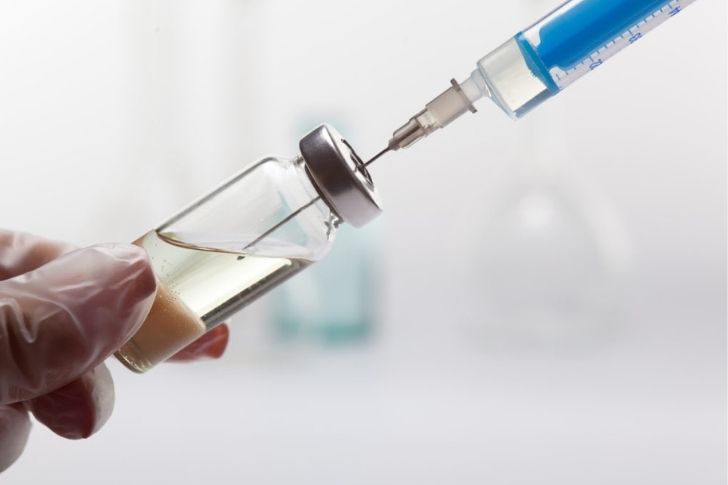
While you’re at your doctor’s office, it is also the best time to keep your vaccinations up to date. This is very important, especially for those trying to conceive. You have to consider that being pregnant will lower your immune system to some degree, and you will need all the protection that you can get. Thank goodness for vaccinations. These are formulated to protect your body from a number of diseases and infections. Your doctor will definitely keep records of these, and you can check if you have any lapsed vaccinations. Get them while you’re still trying because you’ll also get a different set of vaccinations once you get pregnant. Remember, you and your baby need all the protection that you can get for nine months.
Day 8: Schedule a Preconception Visit

A planned pregnancy will give you more control over your body and will also control the risks associated with it. So while you’re at it, schedule a preconception visit with your obstetrician. Your doctor may have more helpful insights on how to go about the journey. This is also a great opportunity to talk to your doctor about any reproduction concerns you may have. List down all your questions and concerns so that everything will be covered during your visit. Your doctor will also assess you on how ready you are to get pregnant. He or she would be able to help you with any infertility issues as well. Any health risks during pregnancy will also be taken up, so you know the likely scenario should it happen. Be sure to prepare your health insurance since you will often visit this doctor once you get pregnant.
Day 9: Track Your Cycle
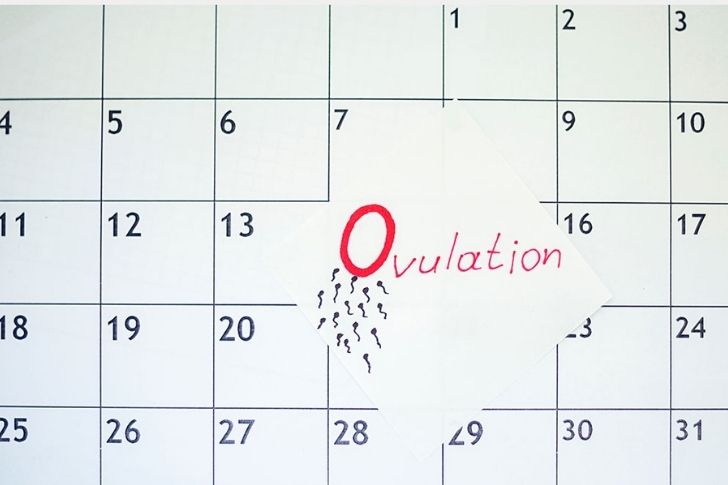
If you are not doing it yet, start tracking your cycle now. Especially that you’ve already stopped your contraceptives, it’s time to get your body more intimately. You have to learn your fertile window, and being able to narrow this down will give you higher chances of conceiving. Understanding your cycle will also give you a better understanding if you’re body is going through something. You will easily discover if something is off and there’s a need to pay your obstetrician a visit. You need to keep a note of when your period starts and when it ends. You also need to keep track of if it changes every month. The average menstrual cycle is about 28-35 days. There are many apps now that help you track this as well. You don’t need your credit card for this since most of them are free.
Day 10: Limit Toxin Exposure

We’ve discussed this to some degree, but we’ll break down more ways on how to limit toxin exposure. You don’t realize it, but some items actually contain a lot of chemicals. Remember, high amounts of toxic exposure can be dangerous for a developing baby, so try to minimize your exposure to these common offenders:
- Avoiding synthetic fragrances
- Opt for Bisphenol-A (BPA)-free containers
- Choose chemical-free home and personal care products
- Skip certain beauty services
To avoid exposure to any of the mentioned above, try to do the following:
- Make your own household cleaners using water and vinegar only
- Choose organic food
- Stock up on fragrance-free laundry detergents
- Throw out makeup products that contain parabens, sodium laureth sulfate, and mercury
- Choose fresh foods over canned, which may contain BPA
Day 11: Practice Stress Relief

It is important to learn how to manage your stress, whether you’re pregnant or not. You need to discover a good stress relief outlet for your overall well-being. Undergoing a lot of physical changes during pregnancy could be really stressful and it can also be quite hectic in the first few months after the baby is born. So you will need to learn how to manage your stress in a healthy way. Don’t resort to binge eating or something that will just give you temporary relief. A relaxing walk or doing breathing exercises can do wonders. You can also look for things that will bring you joy. Take credit for the small things that you’ve achieved and don’t be too hard on yourself.
Day 12: Try Yoga

In line with managing stress, yoga is also a great way to relieve tension and stress from your body. It helps your body and mind relax, getting rid of the tension in your shoulders. You’ll be surprised to learn that yoga also has a lot of fertility benefits. It can help you control your emotions and anxiety related to the conception process. You may not realize it yet, but it can be stressful, especially after months of trying with no result. Yoga can also prepare your body physically for pregnancy. The different figure positions will stretch and strengthen your body. Take a look at the available yoga classes in your area. We don’t think you’ll exceed your credit limit when you enroll in one.
Day 13: Visit the Dentist

An easily-missed but all too important aspect is your dental health. While you’re going about your doctor visits, please stop by your dentist to have your teeth checked, too. Your hormones during the pregnancy may go haywire and can cause a lot of changes to your body. Often, these can affect your gums and teeth. While good brushing habits can keep you off pregnancy gingivitis and cavities, your dentist may have more insights on your current dental health. Do the necessary treatments as early as now because it may be difficult to do these once you’re already pregnant. Check your insurance coverage to make sure you’re covered, too. It is still best to keep out of pocket expenses to a minimum.
Day 14: Quit Tobacco and Alcohol
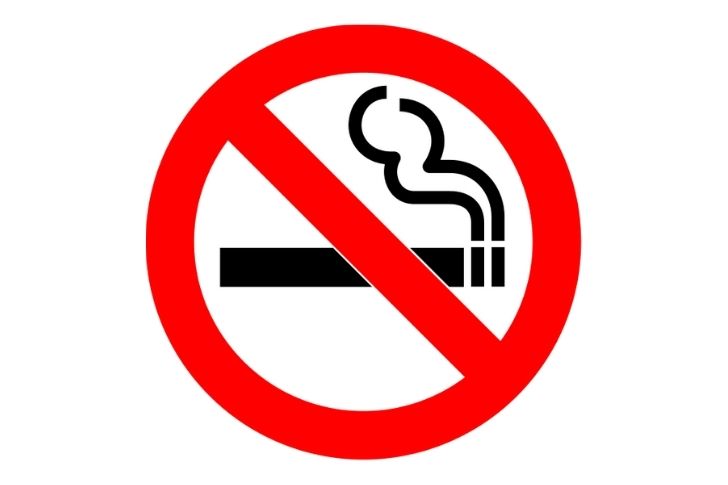
This is self-explanatory, but if you’re still not doing it, you need to stop smoking or drinking alcohol. Not only do these habits bring tremendous harm to your health, but they can also harm an unborn baby in a number of ways. For one, smoking exposes your baby to harmful chemicals. It actually restricts blood flow and may cause preterm labor. Meanwhile, drinking puts the baby at risk of fetal alcohol syndrome. It’s time to get rid of bad habits and make investments to a healthier lifestyle. This will not only be good for your baby but will also benefit you in the long run.
Day 15: Be in the Act of Procreation

To begin with, you’ll have to procreate to get pregnant. However, with pressure from work, personal responsibilities, and many more, the action can sometimes become a chore. It’s no longer a unique space between two lovers. Refrain from turning this into a task and make sure that you still have fun doing it. Remember the passion of your early days and go with the flow. Strong relationships often take credit from sound lovemaking habits. While timing plays an essential role in getting pregnant, this doesn’t significantly impact if you don’t have any fertility issues. Make sure you stop all forms of contraceptives and get into the act often. Plan something romantic to spice things up.
Day 16: Reach Your Healthy Weight
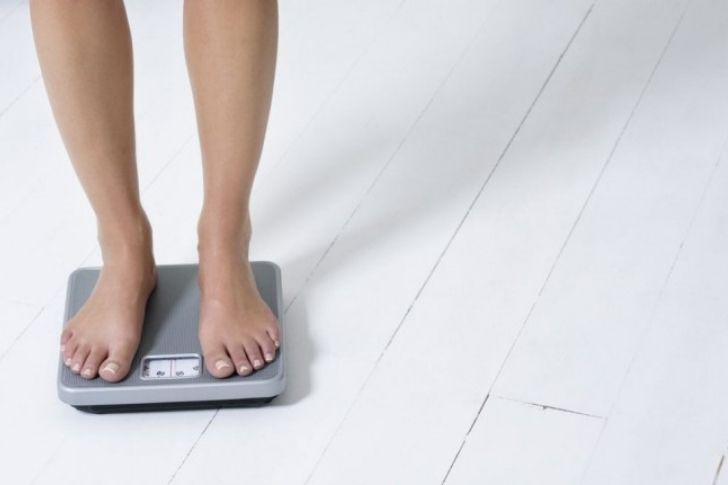
Studies have shown that obese women have lower chances of getting pregnant to some degree compared to those who have the ideal weight. Your weight can affect your hormones, so that means it can stop your ovaries from releasing an egg. This also goes true to being underweight. So it is crucial to figure out your body mass index (BMI). Your doctor will most likely calculate this number during your visit. If the result falls on either overweight or underweight categories, you would need to plan your diet and exercise to attain the ideal weight. Remember, your weight affects your hormones, so it’s essential to manage it. In the end, you’ll reap great benefits for being on the healthy scale regardless if you’re trying to conceive or not.
Day 17: Gather Family Medical History
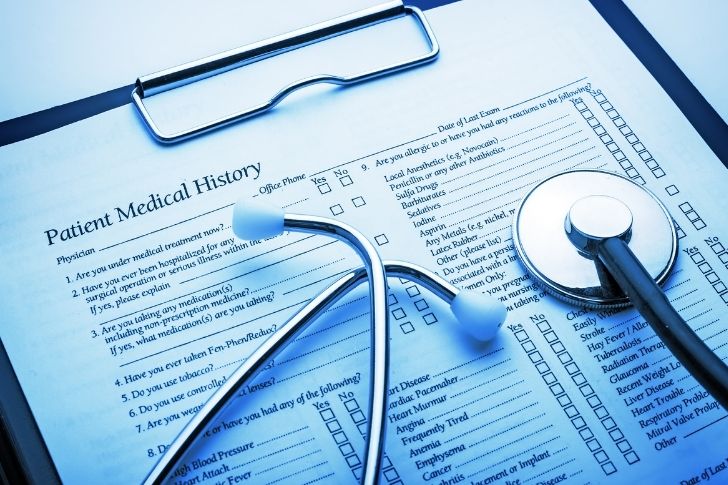
You may not be aware of this, but your family’s genetic factors play a role to some degree in your baby’s health. Often this step is not being done. However, if you’re still in the planning stage of conceiving, it would b wise to ask your parents and relatives if there are any genetic conditions you should be aware of. Your partner should do likewise. It sounds scary but remember that prevention is always better than cure. If you’ve discovered something of concern, you should head off to a genetic counselor to discuss them. They may request further testing, but it is best to learn them now or regret them later. So make sure to gather your family’s medical history for reference.
Day 18: Discuss Prescriptions
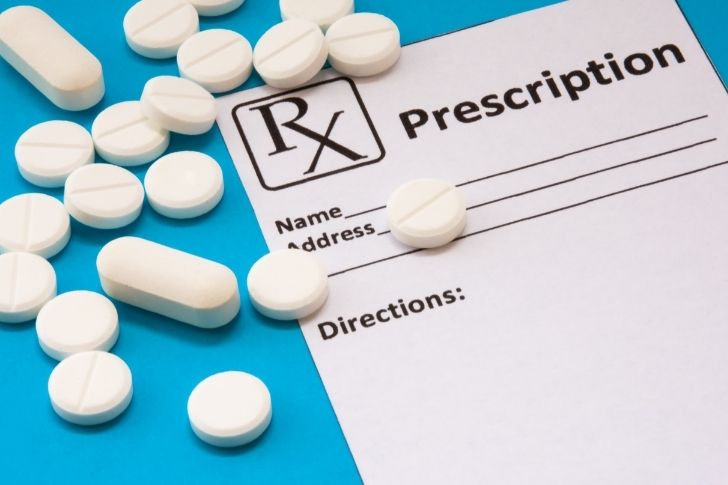
If you’re taking maintenance medicines, it is important to pay your doctor a visit to make the necessary adjustments when you’re trying to conceive. Some medications and supplements may be harmful to your baby. Even medicines prescribed for certain illnesses have an impact on pregnancy. You would often see a warning on medicine labels if it is not prescribed for pregnant women. So it is best to make sure that your prescribed medicines do not impact your chances of getting pregnant and on your baby should you fall pregnant. Don’t worry; your doctor can recommend some baby-safe prescriptions as a replacement for your old ones. Do check your insurance policy if the new medicines are covered so you can also save some cash.
Day 19: Find Help for Domestic Violence

This is not a compulsory step but all too important not to mention. If there’s any violence at home, then it must be reported right away. The environment will compromise your life and that of your future baby’s. No amount of insurance can save you from an abusive environment. While it can cover for some of your medical expenses resulting from the abuse, it doesn’t entirely stop the problem, and you end up with compromised well-being. Call the domestic hotline to speak to a trained advocate to seek sound advice about your situation. Don’t worry because all of their services are confidential. We hope someone won’t have to go through this step, but we are putting this out should someone need a reminder to get on the phone and call the domestic violence hotline.
Day 20: Get Good Sleep

Never underestimate a good eight hours of sleep can do to your body. Many of us abuse our body and neglect the hours of sleep that it actually needs. Try to catch up with your sleep while you can because it can get hectic once the baby arrives. You may not know this, but sleep is as important during pregnancy as it is after the baby is born. Remember, sleep takes the credit for all the repair and healing that your body undergoes. The body restores the heart and blood vessels during sleep.
That’s why those who often lack sleep have an increased risk of heart problems, kidney disease, diabetes, and stroke. You don’t want this while you’re trying to get pregnant. So best to give the body the rest it needs.
Day 21: Limit Caffeine

Others swear by kick-starting their day with a cup of coffee. However, if you’re pregnant, there are daily intake recommendations to take note of. It is advised that pregnant women should only take about 12 ounces of coffee per day. If you are one of those, who can’t function properly without caffeine, make an effort to slowly wean it off your system, especially if you are consuming more than the recommended amount. You can also opt to replace coffee with other organic alternatives. Rooibos tea is a great replacement. However, be cautious about taking them in the first trimester, otherwise, it should be safe after that. You can’t risk anything during the first trimester, even if you have insurance. Consult your doctor for the best recommendation based on your body and needs.
Day 22: Guzzle Water

Just like sleep, we often neglect to take in the recommended amount of water for our bodies. Remember, our bodies are made up of 60% water, so make sure to keep yourself hydrated. It is recommended to drink at least 9 cups of water a day for women. If you’re pregnant, it would be better to increase this number to some degree because you will need more to form the amniotic fluid, produce extra blood, build new tissue, carry nutrients, and flush out toxins. Remember, your body is going to support two human beings, so it will need more than your usual liquid intake. Don’t forget to ask your doctor about this when you pay him or her a visit.
Day 23: Learn How Conception Works
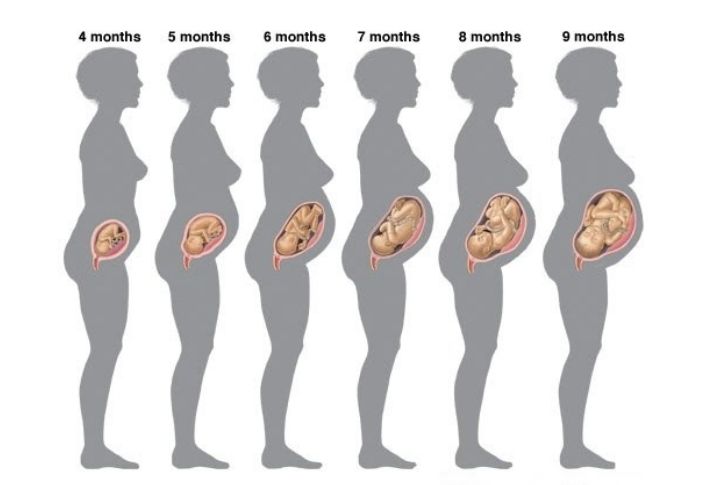
Learn everything you can about conceiving. Revisit some basic information about how conception works because this knowledge can increase your chances of getting that positive sign. Planned Parenthood has some useful resources, so you understand better how pregnancy happens. This is a necessary investment on your part if you want to grasp the entire process. You need to know your fertile window which will increase your chances of getting pregnant. If the timing isn’t correct, the egg is flushed out as menstruation. Learn how conception works, so you’ll be aware of certain aspects of your life that can affect this process. You’ll also see a glimpse of what giving birth looks like, preparing you for this part as well.
Day 24: Have Him Get Checked Out

While most of the health checking is done on women, it takes two to get pregnant. As such, it is also best to have your partner checked out. Believe it or not, but 30 percent of infertility cases can be traced back to men. It is still a good idea if your partner is in good health condition while you’re trying to conceive. Have him schedule a physical exam. As much as you are eating healthily, he should also do the same. Make sure that he does regular exercise, and that he stops smoking, which should be done even when you’re not trying to conceive for the sake of his own well-being. It’s also been advised to limit alcohol intake. While at it, it would also be the best time to check his health insurance policy to make sure it’s updated.
Day 25: Boost Your Immune System

In relation to being healthy, you also need to make efforts to boost your immune system. Your immune system decreases to some degree when you get pregnant. In the end, you become more prone to common colds, flu, and more. It gets extra difficult if you fall ill while pregnant. Remember, the regular medicines you would usually get over the counter may not work well with the baby. You have to be extra careful to avoid getting sick at all costs. Give your immune system extra help by getting some Vitamin C on top of eating healthy and getting enough sleep. Make sure that your diet is also rich in antioxidants. It is also important to maintain good personal hygiene to keep away from harmful bacteria and viruses.
Day 26: Learn the Do’s and Don’ts

Now we’ve covered a few basics about what your body needs during pregnancy, it’s time to take up a notch and learn the dos and don’ts. You would often hear endless advice from experienced mothers to similar ladies who are also trying to conceive. You have to be careful about filtering their do’s and don’ts because some of them are not based on science. You can also ask your doctor for a basic list of do’s and don’t while you’re pregnant. Studies have shown that pregnant women are more susceptible to contract food-related problems. Check out this list of food to avoid while pregnant from the FDA. Be sure to check the label or do your own research on some of your favorite foods and how they are prepared.
Day 27: Work Around

Like it or not, but you need to make adjustments to your job when you are trying to conceive, especially if your job is physically demanding. Lifting heavy weights or being in dangerous positions is not good for someone who is trying to conceive. This goes true to standing for long periods of time and bending at the waist too. This has been shown to lead to menstrual disorders, fertility issues, or miscarriages. It is best to discuss your work setup with your doctor and ask his or her recommendations on the matter. Heavy physical work is not advisable for pregnant ladies. That’s why it is wise to use your money in other investments should the time come you need to get off from work for an indefinite time.
Day 28: Do Something Crazy

All the restrictions, the dos and don’ts for someone who is trying to conceive, could get overwhelming. A lot of the normal activities that you do will no longer be applicable once you try to conceive. So it would be wise to get on to something you’ve meant to do while you still have the chance. Sign up for that skydiving activity or hop on to a roller coaster. You will no longer be able to do these things once you start conceiving and have little chance of doing it even after the baby is born. So best if to do it now at the planning stage. Give yourself some credit for going this far and do the things you’ve always wanted to do.
Day 29: Check Your Health Policy

We have been saying this previously, but we can’t emphasize enough the importance of checking your health insurance policy. It is essential to review what’s covered in your policy before you get pregnant. You will need all the prenatal care that you can get. Many women have given birth without prenatal care, which resulted in low birth weights, which could be fatal. So keep your prenatal visits regularly. Make sure you get all the guidance and prescriptions that you need from your doctor. More importantly, you need to check your policy on what can or can’t be covered, so you know how to manage your finances. You need to prepare once you give birth, too, so you need to check on that detail as well.
Day 30: Communicate

Now, the last one is a vital investment in any relationship. This may sound cliche, but you will need to keep the communication channels open with your partner. Conceiving is not a one-way street. You will need all the support that you can get from your partner. You should also do the same for your partner. Sometimes, the process can take months or even years. It can take a toll on both of you as a couple. At the planning stage, practice being open and honest with your partner so you can easily lay down your issues or frustrations. Being able to say these things is important to keep your relationship healthy. However, when both of you are working towards a common goal, things can be easier.
